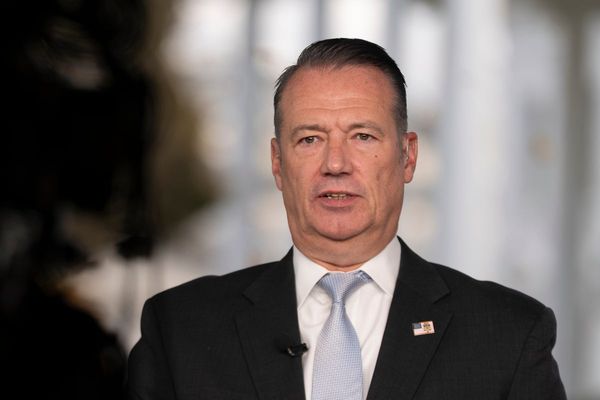
The review of the Reserve Bank of Australia has “opened the door” for a potential shift away from targeting inflation using interest rates, one of the review panellists says.
Renee Fry-McKibbin told an event on Monday that the panellists had examined “a lot of alternative frameworks” but it would fall to future reviews to discuss ditching the bank’s current goal of aiming to keep inflation between 2% and 3%.
Fry-McKibbin made the comments in answer to a question about targeting nominal income instead of inflation. Nominal income represents what people or nations are earning, not adjusted for inflation.
Such a shift is advocated by some leading economists, including Fry-McKibbin’s husband and fellow economics professor at the Australian National University Warwick McKibbin.
The RBA review, released last week, found targeting income – setting a goal for how fast the economy should grow in raw terms – “may, in theory, perform as well or better in some circumstances” than aiming for an inflation outcome.
“Nominal income fluctuates less in response to temporary supply shocks than does consumer price inflation,” it said. “As a result, monetary policy may react less to temporary supply shocks under a nominal income target, particularly compared to a strict inflation-targeting regime.”

Still, the review said the bulk of its consultations supported a flexible inflation target framework “because it had performed well and was understood by the public”. At this stage, it “did not find sufficiently strong evidence to support a switch to an alternative framework”.
The RBA has come under criticism from some for its record series of 10 consecutive interest rate hikes to rein in inflation. The bank paused earlier this month but may resume its rate increases as soon as next Tuesday.
Fry‑McKibbin said public familiarity with the inflation goal was one reason to retain it. The review’s 51 recommendations – all accepted in principle by the Albanese government – also provided enough reforms of the RBA for now.
“We didn’t find compelling evidence to change from the flexible inflation targeting framework, mainly because it’s well-understood,” she told a Committee for Economic Development of Australia (Ceda) event.
“We were also recommending a lot of other changes so we didn’t necessarily want to do everything all at once. But we have opened the door for reviews of frameworks and elements of other monetary policy.”
Warwick McKibbin, a former RBA board member, said it was a “fair call” to leave it to future reviews to examine any shift.
“The review suggested that this issue should be addressed again in five years’ time when the next review occurs and I agree with that.”
McKibbin said central banks would probably have responded differently to the supply shocks generated by the Covid disruptions and Russia’s war on Ukraine if they had been targeting nominal income rather than inflation.
He cited the example of a flood or bushfire that disrupts supply and reduces output, driving up prices. “Nominal growth probably doesn’t change, and therefore you don’t have to tighten monetary policy,” McKibbin said. “But if you’re just looking at inflation, you would tighten monetary policy and make the output losses worse.”
In the future, central banks will have to hone policies to reflect the likelihood of more disruptions from extreme weather amid the climate crisis.
“So they do have to change the framework to accommodate the new world we live in,” McKibbin said. He said he was interviewed twice by the panel and made two submissions, including a 2018 paper he presented at an RBA conference.
McKibbin said the review was right to prioritise governance improvements within the RBA – such as creating a specialised monetary policy board to set interest rates – rather than replacing its target.
In a few years’ time, “we’ll have a lot of empirical evidence and we’ll probably even have a couple of central banks who are explicitly talking about these nominal targets instead of purely inflation”, McKibbin predicted.







